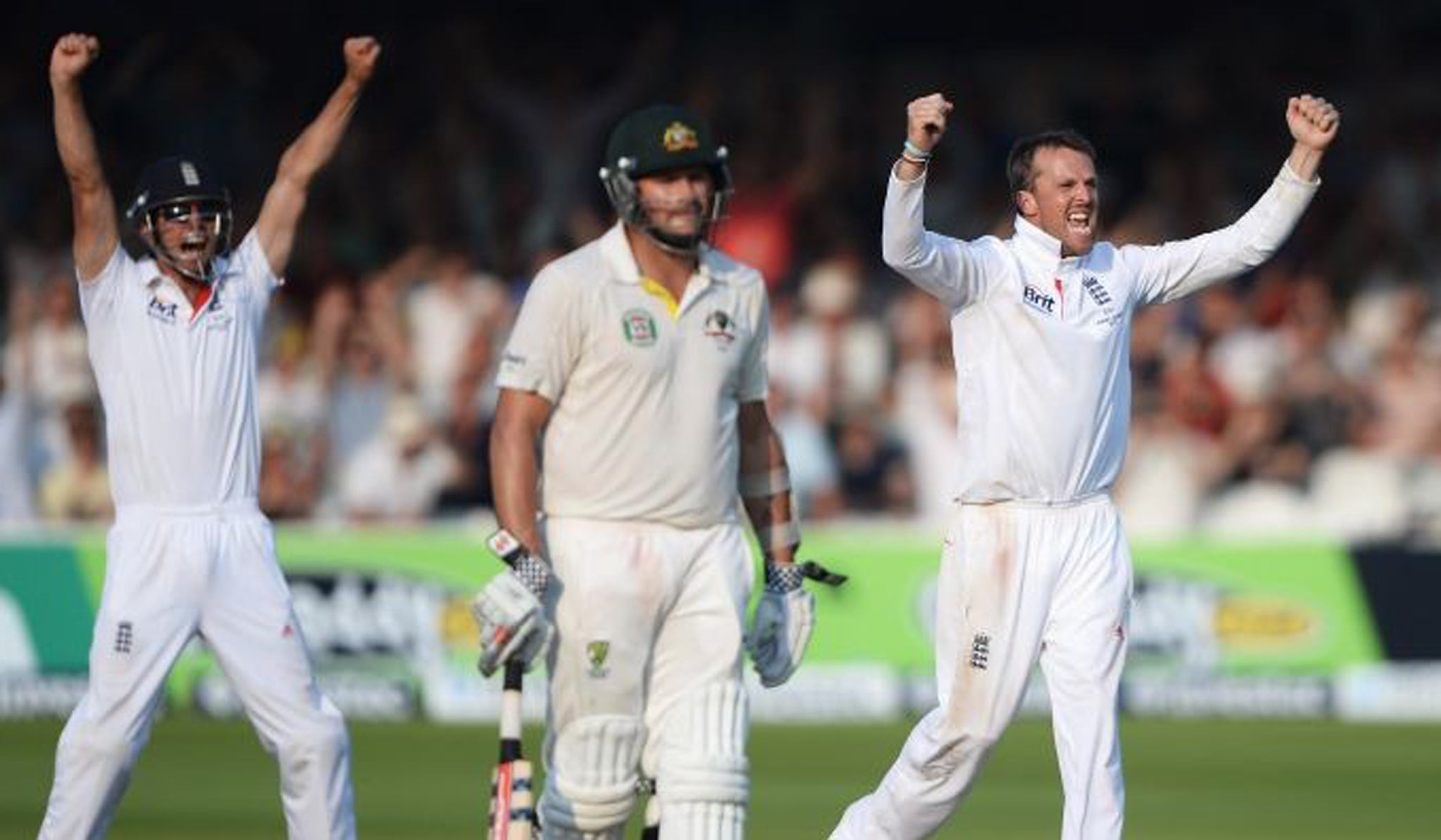Robin Scott-Elliot: Ashes wheel won't turn back if Aussies would rather watch 'Shaun the Sheep'
The Last Word: Here people watch sport, from football down, in numbers envied elsewhere

Your support helps us to tell the story
From reproductive rights to climate change to Big Tech, The Independent is on the ground when the story is developing. Whether it's investigating the financials of Elon Musk's pro-Trump PAC or producing our latest documentary, 'The A Word', which shines a light on the American women fighting for reproductive rights, we know how important it is to parse out the facts from the messaging.
At such a critical moment in US history, we need reporters on the ground. Your donation allows us to keep sending journalists to speak to both sides of the story.
The Independent is trusted by Americans across the entire political spectrum. And unlike many other quality news outlets, we choose not to lock Americans out of our reporting and analysis with paywalls. We believe quality journalism should be available to everyone, paid for by those who can afford it.
Your support makes all the difference.The Japanese-speaking saxophonist and former skier Dirk Nannes is not your archetypal Aussie cricketer but he has a reassuringly archetypal Aussie turn of phrase.
“The wheel will turn and the Poms will be crap again,” said Nannes during a discussion this week on the state of Australian cricket after his country ended up in a battered green heap at Lord’s.
While these are the best of sporting times for Britain, they are the worst of them for Australia. Never mind the cricket, there’s the rugby and the Lions, there’s Australia’s swimmers, so often the country’s sporting flag bearers, slipping into Barcelona for this week’s world championships looking for redemption after their “toxic” experience at London 2012 – a first Games in 36 years without an individual gold. This afternoon in the Olympic Stadium Sally Pearson, the hurdler who has become the country’s go-to sports star, will return to the sight of her triumph last summer (Australia’s worst Olympics for 20 years) desperate to rediscover a modicum of form before defending her world title in Moscow next month.
The crap, it seems, has hit the fans, too. The Lord’s Test proved to be less of an attraction on TV Down Under than Shaun the Sheep – admittedly it was not aired on one of the major channels, but that in itself sends a message, particularly if you watched the wonderfully hirsute drama series on Kerry Packer’s fight with the cricketing establishment. Packer wanted exclusive rights to Australian cricket, as he believed it offered a road to riches.
The Ashes series Down Under will be played out to healthy audiences, but that is an exception for Test cricket in Australia (and elsewhere), one that happens only when England are in town. This week 83,000 and 95,000 watched Manchester United and Liverpool play games in Sydney and Melbourne respectively. That should set alarm bells ringing across Australian sport. The appetite is there but Aussie sport, the home-grown variety, is vulnerable. There is a new cane toad in town. Is Australian sport in robust enough health to live with it?
Sport in Britain is. Cricket is in a healthy position. There are not the basic playing resources that Australia boasted in their heyday – the list of potential replacements for Kevin Pietersen does not boast a Stuart Law or a Jamie Cox – but the structure and organisation of the game in England is in good shape. There is a concern for the future; the limited exposure cricket gets in this country on free-to-air television raises justifiable fears for its long-term health – that may help Nannes’ wheel to turn in time.
There is a cyclical nature to sport, or rather a birthing coincidence – having Shane Warne, Glenn McGrath and Ricky Ponting in the same era was Australia’s good fortune – but structures, support, coaching and finance matter much more today. You can’t plan for a Warne but you can, like British Cycling, plan everything else and that can take you a distance towards the podium.
History backs Nannes. Both countries have enjoyed periods of success followed by dire days. But terminal decline happens, especially in today’s sporting market where there is so much more competition for athletes, or rather choice for young people wanting to play sport. This week West Indies played a one-day international against Pakistan at Gros Islet in St Lucia – two exciting sides, but the ground was barely populated. On the same day Lancashire and Yorkshire staged a T20 game in front of 11,000. On Thursday, Middlesex and Surrey entertained 28,000. The wheel is stuck for West Indies cricket.
People watch sport, from football downwards, in Britain – and go abroad to watch it, too – in numbers that are envied elsewhere. Keep watching and that helps fund success, keep watching and TV will keep paying ever-increasing sums to show it. The Sydney Olympics in 2000 were a glorious peak for Australian sport; the London Olympics have helped embed sport ever stronger in our culture. Britain’s remarkable appetite for sport, all sorts of sport, means it is in demand as a host (Fifa apart) and that puts British sport in a good place to keep pedalling the cycle of success.
Join our commenting forum
Join thought-provoking conversations, follow other Independent readers and see their replies
Comments